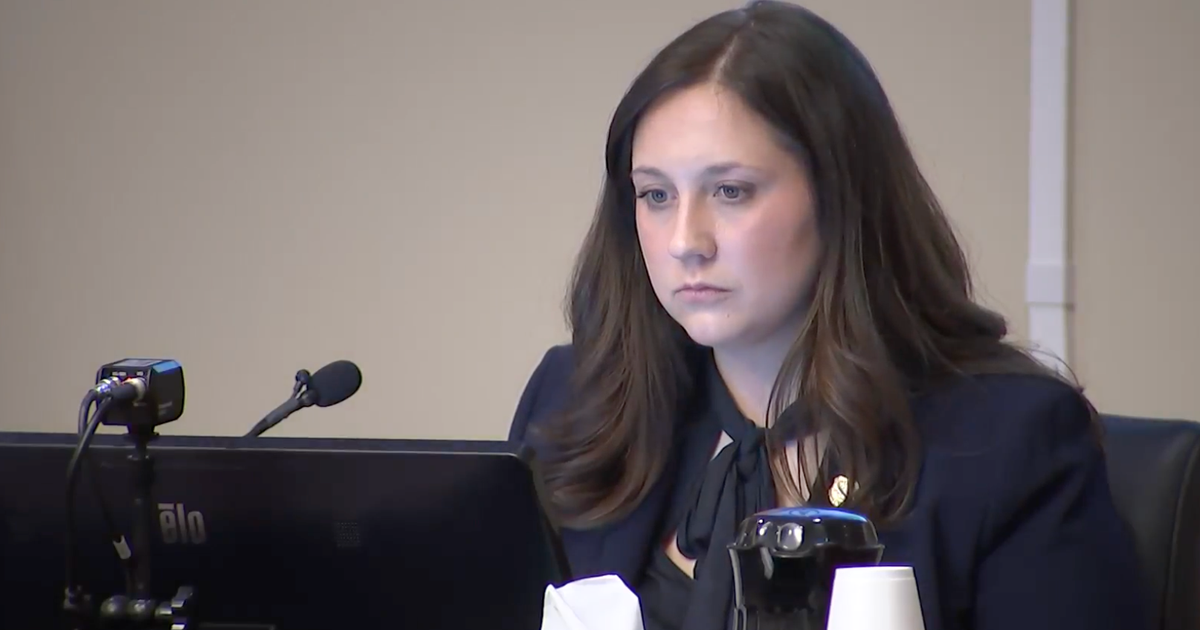What are "super agers" and why aren't they showing signs of Alzheimer's?
MIAMI - The number one risk factor for Alzheimer's disease is aging. Yet somehow not everyone who ages develops the disease and researchers want to know why.
A study of so-called "super agers" is currently underway in hopes of finding answers that can one day be used to help others.
Natalie Ramirez of Weston loves watching the news and classic movies. At 95 years old, she still remembers all the Hollywood Golden Age stars.
"The night that Lucy and Desi had their baby, America stood still," she recalled as if it was yesterday.
In fact, she remembers pretty much everything dating back to her own childhood.
"I'm 8 years old standing on 145th Street and Broadway with my mom and my little brother Edward at the time. And we see the Hindenburg fly overhead," she recalled.
Ramirez doesn't take these memories for granted.
"I feel for the people that now are trying to remember. I feel extremely blessed that I can remember my checking account number verbatim," she said.
Originally from Puerto Rico, Ramirez grew up in New York and eventually settled in Weston, where she now lives with her daughter and granddaughter who are both hopeful her longevity runs in the family.
"It's remarkable to me that we have both become chronologically advanced," said Dr. Nina Ramirez, Natalie's daughter. "I told her just wait for me because then we can go as a two-for-one special. We've got a lot of living to do."
"Blessed is not a word that encompasses what magic it truly feels like to be able to wake up every day to her screaming at CSPAN at 6 a.m.," jokes Natalie Birriel, Natalie Ramirez's granddaughter. "It's the greatest alarm clock that I could have asked for. I think that it is akin to winning the lottery."
But the truth is not all families hit this so-called "genetic lottery." Ramirez hopes that by sharing her story, and her mind with scientists, that might change.
"That's exactly what we're interested in understanding. What are the biological drivers that allow people to live not only long but most importantly, healthy lives," said Dr. Sofiya Milman, a professor of Medicine and Genetics at Albert Einstein College of Medicine.
What are "super agers"?
Dr. Milman is leading the Super Agers Family Study, which will compare people aged 95 and older and their adult children to older adults who are not considered "super agers." The goal is to identify inherited and natural factors that slow aging and protect against age-related diseases, like Alzheimer's.
"Then we can create medications and therapeutics that will mimic the function of those longevity genes and biological factors that allow people to live longer. In order to allow everyone else who did not win the genetic lottery to live a longer and healthier and more fulfilling life with better quality of life," Dr. Milman said.
Ramirez found the study online and was eager to take part. Because when it comes to how she's lived almost a century, she's an open book.
"I don't have a secret to a long life," she said. "Being open to new things is very important, so you wonder where did it go? It goes by living each day, each day brings a new adventure. So we have little experiences every day."
Ramirez said she doesn't feel like she's in her "final act". In fact, she's actually taking on a new role as an actor in a film her granddaughter is producing.
"My legacy is that I have been given a lot of gifts," she told CBS News Miami. "I hope that I have used them well."
The Super Agers Family Study is still ongoing and researchers are looking for participants.
If you or your loved ones are over 95 years old, click here for more information.








